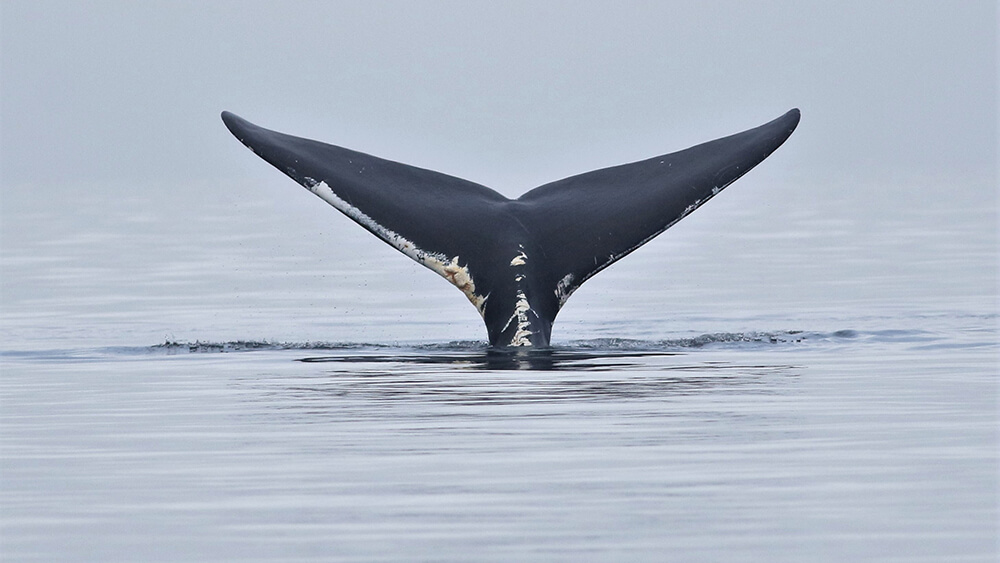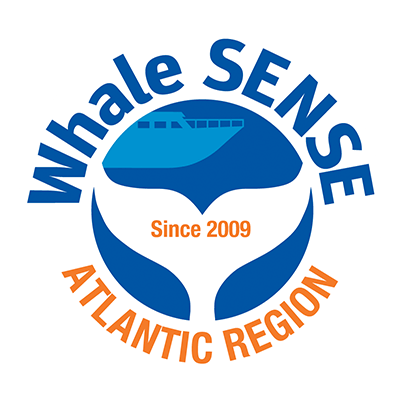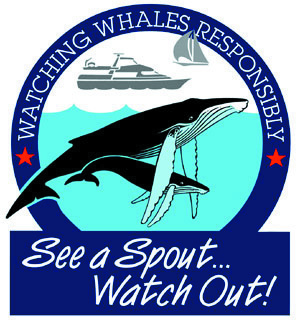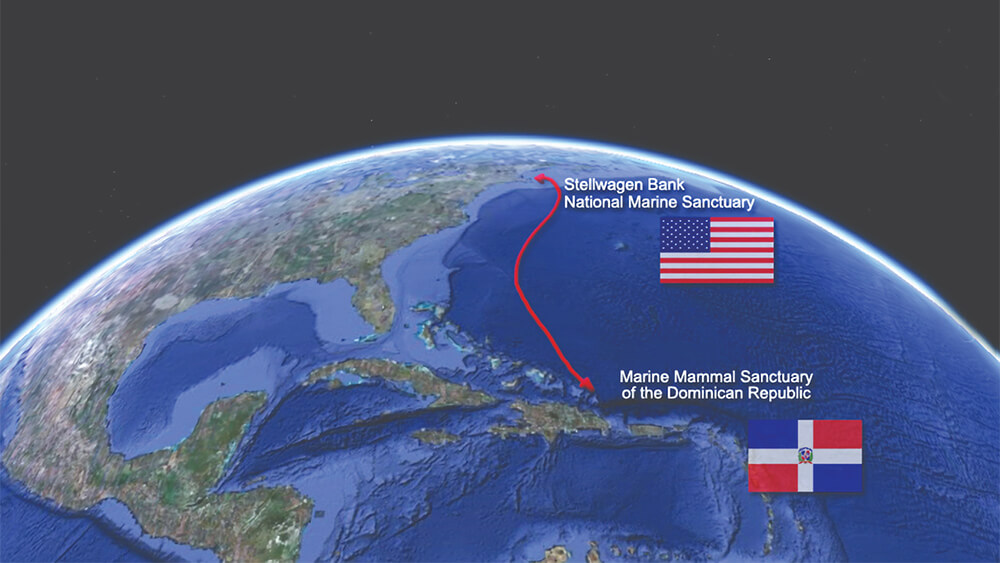Whales

Whales attract many visitors and support important ecotourism and recreation industries. To protect these charismatic animals from vessel strikes, acoustic impacts, and entanglements, the sanctuary operates or partners in several protection programs. The sanctuary has also made strides to protect humpback whales by establishing sister sanctuary agreements between nations located at the endpoints and along the corridor of migratory routes.
Right Whale Corporate Responsibility Project
Using the Automatic Identification System (AIS), sanctuary researchers and geographers have been tracking commercial ships through the sanctuary and determining speed in seasonal and dynamic management areas. The speed zones were established by NOAA to protect critically endangered right whales. Vessel captains and companies receive “ship report cards” informing them about compliance with the speed rules. The format for the program, which began in 2010 with the Massachusetts Port Authority and the International Fund for Animal Welfare, has been adapted for whale protection in Channel Islands National Marine Sanctuary.
Shifting the Shipping Lanes
Sanctuary research led the way in re-routing the Boston Traffic Separation Scheme (shipping lanes) in 2007. The reconfigured route moved vessels into an area of lesser whale density, with little change in travel time. The move reduced the risk of shipstrike for right whales by 58%, and 81% for all baleen whale species. This is a heavily cited case study in marine spatial planning.
Read an article by sanctuary staff about sanctuaries, marine planning, and the shipping lanes case study in a 2013 issue of the U.S. Coast Guard's Proceedings magazine, pp. 10-15.
Whale Alert
A free iOS and Android app now provides up-to-date information on right whale sightings, mandatory and voluntary speed zones, and interactive whale reporting. The sanctuary was a leading force in the development of this app. Get Whale Alert.

Whale SENSE
Commercial whale watching companies that commit to a higher level of conservation are recognized by this voluntary program. The sanctuary partnered with NOAA Fisheries and Whale and Dolphin Conservation to develop Whale SENSE. Find out who's participating.

See A Spout
Recreational boaters thinking of going out to view whales should visit the See A Spout site first to learn how to be a whale-safe vessel operator. The sanctuary partnered with NOAA Fisheries and Whale and Dolphin Conservation to develop this program.
Boater Outreach for Whale Watching (BOWW)
Sanctuary staff travel out to popular whale watching areas during the summer to provide on-the-water tips for safe boating around whales and general sanctuary information to recreational boaters. Injuries from accidents with vessels large and small is a serious problem for sanctuary whales. An informed boating public helps to reduce the threat.
Entanglement Reductions
The problem of entanglement in fishing gear (primarily lobster and crab gear) is a major cause of whale mortality and injury. Sanctuary research provides insights into whale behaviors that may lead to fishing gear redesign and a lessened threat of entanglement. Funding opportunities for recreational fishing-related research, education and stewardship programs may also inspire new ways of fishing. The National Marine Sanctuary Foundation has provided support in this effort in the past. The sanctuary has also worked with NOAA Office of Law Enforcement, On the Water Media Group, and the industry to publicize the threat of entanglement by tuna gear.
Sister Sanctuary Program

Stellwagen Bank is a leader in establishing sister sanctuary agreements dedicated to the protection of shared living resources. Our sister sanctuaries help protect the humpback whale in breeding and calving grounds, and a midpoint in the 1,500-mile migratory route. The Marine Mammal Sanctuary of the Dominican Republic, a southern destination for the whales that feed at Stellwagen Bank, was the first sister sanctuary in our network. Other agreements have been forged with Bermuda, the French Antilles, and the Netherland Antilles.

